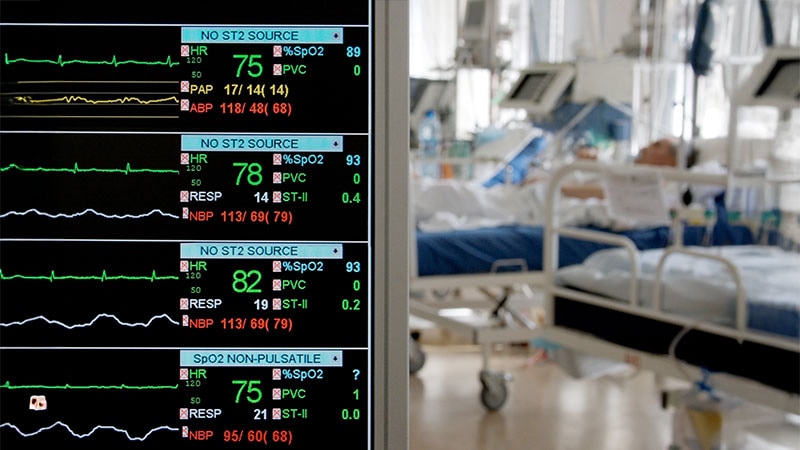TOPLINE:
A fecal metabolic dysbiosis score (MDS) predicted 30-day mortality in critically ill patients and may help identify fecal metabolites as a potential treatable trait to improve survival in these patients.
METHODOLOGY:
- Researchers prospectively collected fecal specimens from 196 critically ill patients (median age, 64 years; about half men) admitted to the medical intensive care unit (MICU) for non-COVID-19 respiratory failure or shock.
- They analyzed the specimens, defined microbiome compositions by shotgun metagenomic sequencing, and quantified microbiota-derived fecal metabolites by mass spectrometry.
- They then correlated microbiota features and metabolites with 30-day mortality.
TAKEAWAY:
- Overall, 30-day mortality was 30.6%. There was no significant difference between survivors and nonsurvivors regarding age, sex, race, and comorbidity burden.
- Microbiota compositions of the first fecal sample after MICU admission did not independently associate with 30-day mortality, nor were there associations between single metabolites and 30-day mortality.
- However, by integrating the fecal metabolite concentrations of 13 microbiota-derived metabolites, the team developed an MDS that predicted 30-day mortality independent of known confounders.
- The MDS may complement existing tools to identify patients at high risk for mortality by incorporating potentially modifiable, microbiome-related, independent contributors to host resilience.
IN PRACTICE:
“Fecal metabolic dysbiosis, determined by quantitation of 13 fecal metabolites, is independently associated with 30-day mortality after MICU admission in our cohort,” the study authors wrote. “Therefore, fecal metabolic dysbiosis represents a potentially treatable trait to improve survival in heterogeneous critically ill patients,” and the MDS may serve as a biomarker to identify patients who might benefit from such treatment.
SOURCE:
The study was led by Alexander P. de Porto, PhD, University of Chicago, Chicago, and was published online in Science Advances.
LIMITATIONS:
The study had limitations. Patients were recruited at a single tertiary academic center and needed respiratory support or a vasopressor, and thus, the results might not be representative of the entire medical ICU population. Also, patients who did not produce a fecal sample or gave a sample that was not analyzable for metagenomics and metabolomics were excluded.
DISCLOSURES:
The study was funded by the Duchossois Family Institute. de Porto was funded by the Niels Stensen Fellowship. The Center for Research Informatics is funded by the Biological Sciences Division at the University of Chicago, with additional funding provided by the Institute for Translational Medicine and the National Institutes of Health (NIH). One co-author was funded by the NIH/National Heart, Lung, and Blood Institute.
The authors declared having no competing interests.
Source link : https://www.medscape.com/viewarticle/metabolic-dysbiosis-score-predicts-mortality-risk-icu-2025a1000g96?src=rss
Author :
Publish date : 2025-06-18 12:35:00
Copyright for syndicated content belongs to the linked Source.
